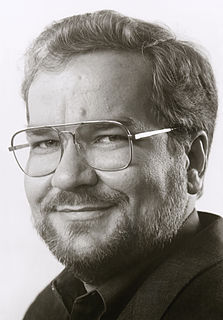A Quote by Paul Virilio
Technologies first equipped the territorial body with bridges, aqueducts, railways, highways, airports, etc. Now that the most powerful technologies are becoming tiny - microtechnologies, all technologies can invade the body. These micro-machines will feed the body. Research is being conducted in order to create additional memory for instance.
Related Quotes
What is going on now, or should happen in one or two generations, is the disintegration of the world. Real time 'live' technologies, cyberreality, will permit the incorporation of the world within oneself. One will be able to read the entire world, just like during the Gulf War. And I will have become the world. The body of the world and my body will be one.
If you look at the Gulf War or new military technologies, they are moving towards cyberwars. Most video-technologies and technologies of simulation have been used for war. For example, video was created after the Second World War in order to radio-control planes and aircraft carriers. Thus video came with the war. It took twenty years before it became a means of expression for artists.
There cannot be an animal body without a territorial body: three bodies are grafted over each other: the territorial body - the planet, the social body - the couple, and the animal body - you and me. And technology splits this unity, leaving us without a sense of where we are. This, too, is de-realization.
The territorial body has been polluted by roads, elevators, etc. Similarly, our animal body starts being polluted. Ecology no longer deals with water, flora, wildlife and air only. It deals with the body itself as well. It is comparable with an invasion: technology is invading our body because of miniaturisation.
There's been a lot of talk about body cameras as a silver bullet or a solution. I think the task force concluded that there is a role for technology to play in building additional trust and accountability, but it's not a panacea, it has to be embedded in a broader change in culture and a legal framework that ensures that people's privacy is respected and that not only police officers but the community themselves feel comfortable with how technologies are being used.
































